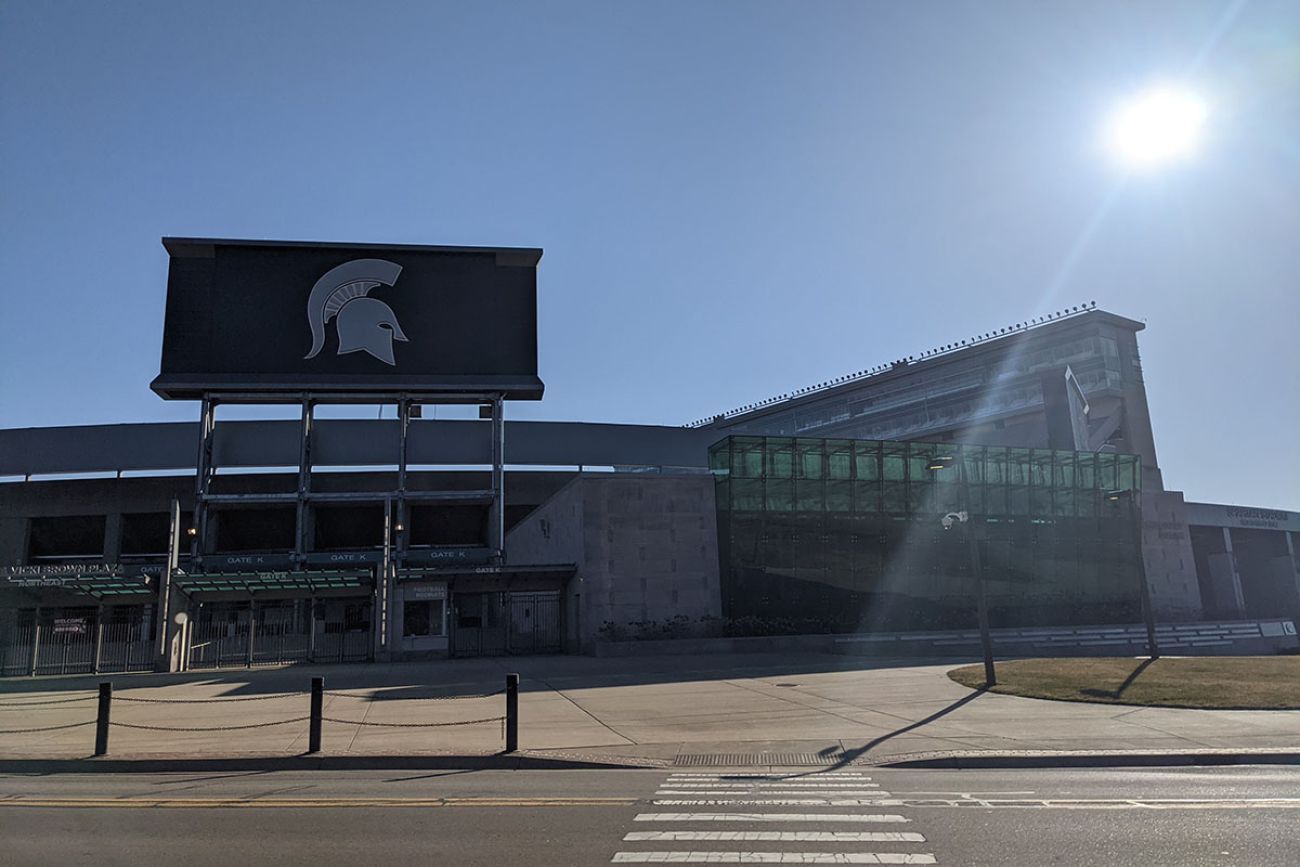Raise a glass, Michigan. Cocktails-to-go, college stadium beer sales now legal

- Michigan will allow liquor licenses at public university sporting venues
- MSU, U-M among the few Big Ten schools that weren’t allowing alcohol
- Cocktail carryout law makes pandemic-era rule change permanent
Michigan residents will be able to drink in college sports stadiums and continue purchasing carryout cocktails from their restaurants under legislation signed by Gov. Gretchen Whitmer this week.
Senate Bill 247 allows public universities to obtain liquor licenses for selling alcohol at college sports events, beginning an hour before a game starts until 30 minutes after it ends.
Separate legislation, Senate Bill 141, allows restaurants and others to continue serving liquor to-go. This bill makes permanent a policy enacted during the height of the COVID-19 pandemic to help small businesses stay open while staying in line with CDC virus safety guidelines.
Related:
- Beer o’clock may beckon at Michigan college sports stadiums under new bill
- Alcohol at university stadiums in Michigan? Lawmakers are interested.
- Michigan college enrollment decline among worst in the nation
Both bills had wide bipartisan support in the Legislature and will take effect immediately. Whitmer said in a Wednesday statement the new laws are about “fairness, safety and revenue.”
Alcohol at university stadiums
Up to now, Michigan barred alcohol sale at college stadiums, and Michigan universities could only apply for liquor licenses when professional sporting events took place on campus. Michigan State University and the University of Michigan were two of three Big Ten schools that banned drinking at sporting events.
Supporters said the sales could deter fans from binge-drinking at tailgate parties. Whitmer also said in a statement universities could gain "a heck of a lot more revenue that we can use to improve the student experience."
In 2019, Texas A&M University made $2.4 million in alcohol revenue after lifting a ban on in-stadium sales.
Sen. Sean McCann, a Kalamazoo Democrat and the bill’s sponsor, also noted that the prohibition of alcohol hasn’t been applied equally. Fans in stadium suites at MSU were allowed to purchase alcohol while the average fan could not.
“It is a basic issue of equality to patrons: why should VIPs get to enjoy the beverage of their choice and other attendees not?” he said. “This levels the playing field.”
The legislation was backed by many public universities, including Michigan State, Western Michigan, Eastern Michigan and Oakland. It also received support from the state’s Liquor Control Commission and trade groups such as the Michigan Licensed Beverage Association and the Michigan Restaurant and Lodging Association.
Some U.S. universities have reported a drop in alcohol-related incidents after allowing in-stadium alcohol sales. West Virginia University reported a 35-percent decrease in police reports during the first four games of 2010 — which the university attributed to alcohol sales and several other policies.
There isn’t a consensus on whether in-stadium alcohol makes games safer. A Bridge Michigan review of 11 studies showed that most noted little significant difference in incidents with or without alcohol sales, while some researchers say more booze usually creates more problems.
Foes fear the sales could exacerbate issues with alcohol in college towns and put a strain on city resources.
“You feel your city vibrating,” Ann Arbor resident Susan Ward Schmidt, who also sits on the Ann Arbor Public School Board of Education, previously told Bridge. “The alcohol just fans the flame.”
To-go cocktails
Whitmer’s signature on a separate bill will make a pandemic-era policy allowing bars and restaurants to sell carry-out and delivery cocktails permanent.
Michigan’s bar and restaurant industry was hard hit by stay-home orders and state limits on in-person dining during the COVID-19 pandemic. The situation was problematic for distillers and traditional bars — unlike restaurants, breweries or wineries, which could offer takeout or delivery options, distilleries were not allowed to deliver their liquor off-premises, and bars without a full food menu were losing out on cocktail sales.
Policymakers’ temporary solution was allowing liquor licensees to sell packaged and sealed containers of mixed drinks with any delivery or takeout orders. Similar to a customer purchasing a bottle of wine or a growler of beer, a customer purchasing carry-out drinks has to flash identification at point-of-sale or delivery.
Officials set an end date of Jan. 1, 2026 on the policy to monitor whether the change had any impact on drunk driving or underage drinking. Sen. Mallory McMorrow, D-Royal Oak, said those concerns haven’t panned out.
“We’ve heard from so many restaurant owners that this additional revenue stream became a lifeline that kept them in business,” she said. “Three years in, it’s proven to be a popular new way for customers to support their favorite restaurants, and has resulted in zero reported violations or safety issues.”
Michigan is the 23rd state nationwide to make to-go cocktails a permanent fixture, according to the Distilled Spirits Council of the United States.
Michigan Education Watch
Michigan Education Watch is made possible by generous financial support from:
Subscribe to Michigan Health Watch
See what new members are saying about why they donated to Bridge Michigan:
- “In order for this information to be accurate and unbiased it must be underwritten by its readers, not by special interests.” - Larry S.
- “Not many other media sources report on the topics Bridge does.” - Susan B.
- “Your journalism is outstanding and rare these days.” - Mark S.
If you want to ensure the future of nonpartisan, nonprofit Michigan journalism, please become a member today. You, too, will be asked why you donated and maybe we'll feature your quote next time!





